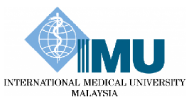Author: Pei Kuan Lai
Contents
ONE HEATLH: The need for a robust framework
Authors: Boon-Peng Hoh, Xin Lee
ABSTRACT
One Health approach emphasises the interconnection between human, animal, and environmental health, advocating for a collaborative and multidisciplinary strategy to address global health challenges. In the wake of the COVID-19 pandemic, the importance of such an integrated approach has never been clearer. We explore how the One Health framework can enhance our preparedness for future pandemics. In addition to roles of surveillance, early detection, policy development, we highlight the impact of noncommunicable diseases and economy addressing future pandemics. We conclude that integrating advanced technologies, enhancing surveillance systems, and fostering inter-disciplinary collaboration between private and public, national and international, are essential to ensuring resilient, sustainable and equitable health system.
Citations: IeJSME 2024 Vol 18 (1): 02-07
An Exploratory Qualitative Study on Cyberbullying Experience from a Victim’s Perspective and Coping Strategies among Women with Heavy Social Media Usage
Authors: Rulin Lee, Alexius Weng Onn Cheang, Serena In.
ABSTRACT
Various studies have highlighted that women are at a higher risk of becoming victims of cyberbullying, with the severity of cyberbullying among women in many countries increasing and the urgency of having necessary intervention steps by governments and legal institutions in place. Nonetheless, the taboo of discussing mental health and individual struggles has hindered victims from disclosing their cyberbullying experiences they have gone through or are still currently experiencing due to the fear of being discriminated against. Therefore, this study aimed to explore cyberbullying from a victim’s perspective among women with heavy social media usage, as well as their coping strategies. A qualitative research design was utilised to understand the cyberbullying experience and coping strategies among five young women aged between 20 to 26 years old. Participants were recruited through social media. Collected data were analysed using thematic analysis which revealed three cyberbullying themes: “harassment”, “relational aggression” and “trolling”, three initial reaction themes: “anger”, “sadness” and “confusion”, two crossroad themes: “helplessness” and “sense of control” that either lead to the relapse of cyberbullying experience or coping strategies, and three coping strategy themes: “social coping”, “emotion-focused coping” and “problem-focused coping” and lastly, cognitive reappraisal. The findings provide comprehensive insights into understanding cyberbullying experiences and coping strategies among women with heavy social media usage. Understanding the effectiveness of various forms of coping allows mental health professionals to support their clients by finding out the implemented coping strategy and expanding on other forms of coping to build a more holistic support for their clients.
Keywords: coping strategies, cyberbullying from a victim’s perspective, heavy social media usage, women
Citations: IeJSME 2024 Vol 18 (1): 08-27
Students’ Knowledge of Peripheral Intravenous Cannulation at A Private University in Seremban, Negeri Sembilan, Malaysia
Authors: Khairunniza Gharib, Thiruselvi Subramaniam.
ABSTRACT
Background: Healthcare providers must have the knowledge to carry out clinical procedures. Placing and maintaining intravenous (IV) infusion is one of them. To perform it, conceptual knowledge is an elementary requirement.
Methods: This is a descriptive quantitative study using a self-administered questionnaire. Section A consists of four items detailing medical students’ socio-demographic data such as age, gender, ethnicity, and nationality. Section B includes 17 True/False items related to knowledge and understanding of peripheral intravenous cannulation (PIVC). Sixty-nine semester 6 medical students were recruited. The goal of the research was to determine their knowledge of PIVC and if there is an association between sociodemographic data and knowledge of PIVC.
Results: All 100% (n=69) respondents were aware of self-introduction, clarification of patient’s identity, obtaining verbal consent, and hand hygiene importance. The majority (98.6%, n=68) had the knowledge to clean the insertion site before performing the procedure, aseptic technique maintenance, and gloves donning. More than half (53.6%; n=37) of respondents were not aware that an 18-gauge cannula was commonly used in adults for PIVC. Overall, findings showed 40.6% (n=28) of respondents have adequate knowledge about PIVC. There was a weak negative correlation indicating an association between socio-demographic variables and knowledge about PIVC (r = -.274, n=69, p<0.05).
Conclusions: The majority of semester 6 year 3 medical students in a private university in Seremban, Negeri Sembilan, had good knowledge of PIVC. Teaching strategies by nursing lecturers can be improved further, for example, role-playing which can increase students’ engagement and encourage critical thinking. This is to ensure that medical students are equipped with sufficient theoretical knowledge as it is important to produce doctors with great quality, confidence, and calibre.
Keywords: knowledge, medical student, perception, peripheral intravenous cannulation, university.
Citations: IeJSME 2024 Vol 18 (1): 28-39
Chinese Medicine External Therapy Combined with Conventional Drug Treatment for Rheumatoid Arthritis: A Systematic Review and Meta-analysis
Authors: Sin Wei Tang, Zhi Hang Wong, Ket Li Ho, Dahlya Qasryna Binti Zulkifli, Jia Wen Koo, Yung Chein Yong.
ABSTRACT
Introduction: Chinese medicine (CM) external therapy is commonly used to treat rheumatoid arthritis (RA) in combination with conventional drug. This study aims to provide a comprehensive synthesis on the efficacy of CM external therapy combined with conventional drug treatment in RA.
Methods: Randomised controlled trials (RCTs) experimenting the efficacy of CM external therapy (acupuncture, moxibustion and CM fumigation) combined with conventional drug in comparison with conventional drug only in RA patients were collected from PubMed, Medline, Cochrane Central of Controlled Trials (CENTRAL), ClinicalTrials.gov, China National Knowledge Infrastructure (CNKI), and Wanfang databases. Quality was assessed using the Cochrane Risk of Bias Tool. The outcome measures which include Disease Activity Score-28 (DAS28), Visual Analogue Scale (VAS), Swollen Joint Count (SJC), Tumour Necrosis Factor (TNF-α), serum levels of C-reactive Protein (CRP) and Erythrocyte Sedimentation Rate (ESR) were analysed using Review Manager 5.4.1 and GRADEpro GDT online software.
Results: Fifty RCTs fulfilling the criteria were included. Although some level of efficacy was statistically noted on the use of CM external therapies, their certainty levels are mixed, ranging only in between moderate and low.
Conclusions: Mixed levels of certainty has hindered the drawing of conclusion. The addition of CM external therapies to conventional drug treatment may provide some benefits in RA. Further clinical trials with considerations in minimising the risk of bias are recommended to provide more high-quality evidence in the effect of CM external therapies as a complementary treatment in RA.
Keywords: Chinese medicine, fumigation, meta-analysis, moxibustion, rheumatoid arthritis, systematic review
Citations: IeJSME 2024 Vol 18 (1): 40-65
A Review of the Characteristics of Cyberbullying and Cyber Sexual Harassment and the Challenges for Implementing Legal Strategies for their Prevention
Authors: Sinali Gunathilake, Chenadee Pathirage, Shivasankarie Kanthasamy, Sameera A Gunawardena.
ABSTRACT
The increased usage of digital platforms for communication and networking, particularly after the pandemic has caused concern about exposure to bullying and sexual harassment, particularly among young children and adolescents. Cyberbullying (CB) and cyber sexual harassment (CSH), although considered less harmful by many, may cause graver psychological manifestations than their physical forms, due to their potential for wider reach, easier access to private and sensitive information, ability to conceal perpetrator identity and continuous exposure of the victim to the harmful acts. Among the various characteristics, there were differences between age groups and gender, as well as varied psychological and behavioral features among victims and perpetrators which included low self-esteem, low academic performance and interestingly, some victims who themselves, later engage in perpetrating CB on others.
The strategies for the prevention of CB and CSH are similar to that of the traditional forms, which predominantly include raising awareness among students, teachers and parents. This article reviews the characteristics of CB and CSH and discusses the limitations in existing laws and statutes in combating CB and CSH while highlighting the need for improving the policies and guidelines on CB and CSH among educational institutions and workplaces.
Keywords: Adolescent psychology; technology facilitated sexual violence; gender-based violence; cybervictimisation experiences.
Citations: IeJSME 2024 Vol 18 (1): 66-80
IeJSME 2023 Vol 17(3)
Contents
Artificial Intelligence: Opportunities and Challenges in Health Professions Education
Authors: Nilesh Kumar Mitra, Ebenezer Chitra, Pei Se Wong, Chew Fei Sow, Siti Suriani Binti Abd Razak, Hui Meng Er, Vishna Devi Nadarajah
Citations: IeJSME 2023 Vol 17(3): 02-08



